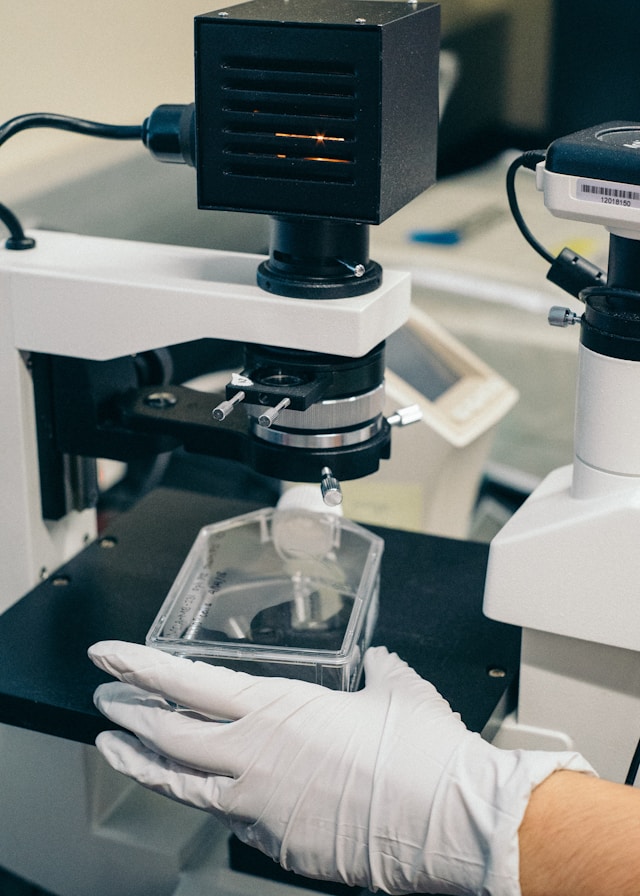-
The Philippine Economic Zone Authority is eyeing guidelines for the registration of pharmaceutical economic zones
-
This, after President Ferdinand Marcos, Jr. recently floated the idea of setting up pharma zones that will serve as one-stop shops to make the drug application process more accessible and efficient
-
PEZA said the creation of pharma zones will increase medical and drug manufacturing-related investments in the Philippines
-
PEZA hosts 26 companies that manufacture pharmaceutical products and medical equipment or devices as of December 2023
The Philippine Economic Zone Authority (PEZA) is eyeing guidelines for the registration of pharmaceutical economic zones.
This, after President Ferdinand Marcos, Jr. recently floated the idea of setting up pharma zones that will serve as one-stop shops to make the drug application process more accessible and efficient.
READ: Marcos eyes pharma zones to streamline regulatory processes, cut medicine prices
PEZA said the creation of pharma zones will increase medical and drug manufacturing-related investments in the Philippines.
During a sectoral meeting with the Food and Drug Administration (FDA) on February 13, Marcos instructed health officials to look into the feasibility of pharma zones which he said would facilitate the development and production of common generic drugs, enhancing local supply and reducing prices comparable to the “true generic level similar to India.”
FDA director general Samuel Zacate said pharma zones established in PEZA-controlled areas will serve as places where the agency can immediately test and register medicines upon entry to the Philippines.
“We are excited and more than encouraged to be facilitating the establishment of pharma ecozones in the Philippines which will become instrumental in the Administration’s efforts to enhance accessibility to medicines and lower drug prices,” PEZA director general Tereso Panga said in a statement.
Under the Philippine Development Plan 2023-2028, PEZA is tasked to accelerate implementation of the ecozone transformation roadmap through the creation of different types of ecozones, including pharmaceutical ecozones.
Pharma zones will become home to companies engaged in all aspects of medical and drug manufacturing-related activities, most especially in research and development (R&D), clinical testing and trials, PEZA said.
“We are coordinating with the Department of Health (DOH), FDA, DTI (Department of Trade and Industry) and the Philippine Chamber of Pharmaceutical Industries (PCPI) in crafting the guidelines for the registration of pharma zones under PEZA in line with this mandate,” said Panga.
Earlier, PEZA entered into a memorandum of agreement with the FDA to streamline applications for permits and licenses to operate for registered business enterprises engaged in the manufacture of food, cosmetic and drug products, including medical devices, and to ensure compliance of ecozone locators to all provisions of the Food and Drug Act of 2009 and other pertinent laws.
There were also talks in 2017 between the Philippines and India to set up manufacturing zones in the country for Indian pharmaceutical companies wanting to tap the Association of Southeast Asian Nations market. Likewise, in 2021, PEZA conducted a briefing for the Pakistan Pharmaceutical Manufacturers Association given its interest to set up drug manufacturing operations in the Philippines to address the growing local demand for generic medicines.
“These pharma ecozones will in the future boost local supply as well as provide business and capability building opportunities particularly for Filipino SMEs (small and medium enterprises) into manufacturing and tolling of drugs and food supplements,” Panga said.
He added they can also contribute to DTI’s science, technology and innovation-driven industrialization strategy through the pharma zones that will seek to strengthen partnerships between global drug manufacturing companies and the local industry players with their integration into the ecozone and global value chains.
Under the Corporate Recover and Tax Incentives for Enterprises Law, domestic market-oriented enterprises to be registered in PEZA and other investment promotions agencies are granted fiscal incentives depending on their location and activity. For health-related activities like manufacturing of drugs and medical R&D, they may enjoy up to 12 years of tax perks.
As of December 2023, PEZA was host to 26 companies in the manufacture of pharmaceutical products and medical equipment or devices such as Terumo, Arkray Industry, Royale Life Pharma, JMS Healthcare and Philipcare Medical, generating investments of about P25.489 billion and more than 19,000 direct jobs.
Moreover, PEZA is reviving talks with leading Filipino companies into pharmaceutical-related activities such as Lloyd Laboratories, Pascual Laboratories and United Laboratories, Inc., for the establishment of a modern pharma park in the country.
PEZA also noted that in 2021, the First Bulacan Business Park (FBBP) was proclaimed by Malacañang as a PEZA zone. The park is expected to welcome companies that conduct R&D for the manufacture of over-the-counter and generic drug products, medical instruments/equipment.
FBBP is adjacent to the First Bulacan Industrial City or the Pharma City of the North, which is home to eight pharma-related firms including Lloyd Laboratories, Pascual Laboratories, Lumar Pharmaceutical, Cargill Phils and Cosmetique Asia.
“In all these, we hope to see the pharma parks creating a platform for increased R&D, technology transfer, registration of local patents, and a complete ecosystem that will enable the country to produce its own medicines and provide access to quality, affordable medicines, medical products and healthcare for all Filipinos,” Panga said.





